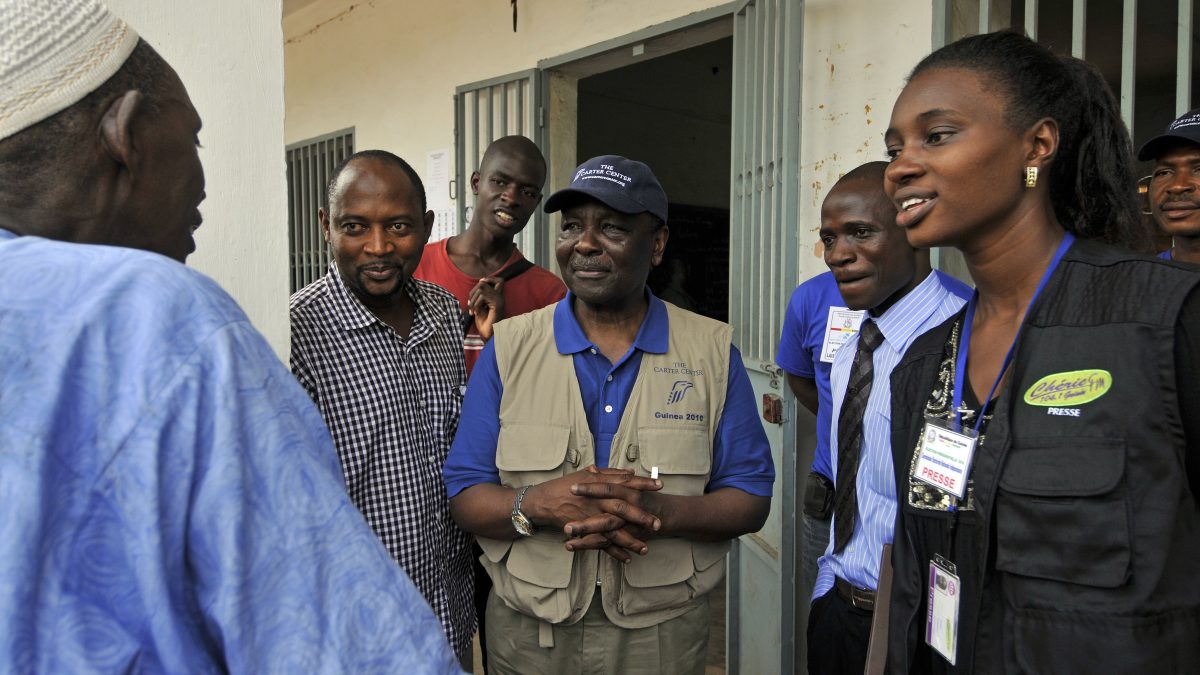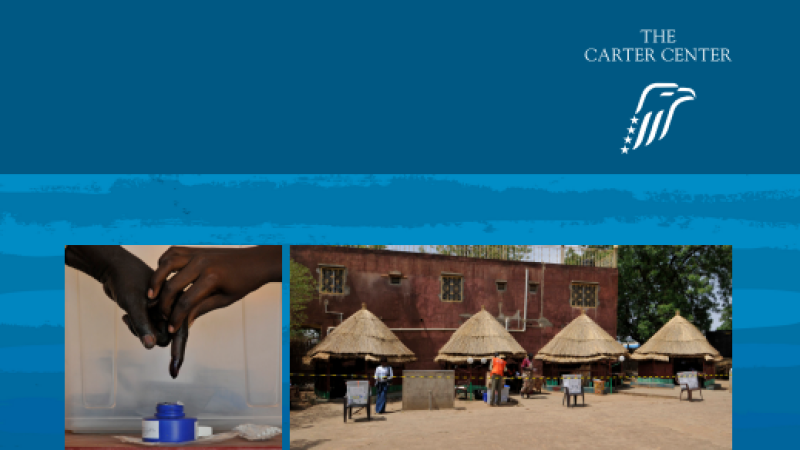Guinea

The Carter Center’s work in Guinea focused on two areas: monitoring long-delayed elections in 2010 and partnering with others to teach farmers how to achieve more abundant harvests and thrive moving forward.
Impact
- Helped ensure democratic process through election observation
- Empowered Guinean farmers and institutions to stimulate food self-sufficiency

Related Content
Global Impact Starts with You
Your support sustains the Carter Center's mission of waging peace, fighting disease, and building hope around the world.

